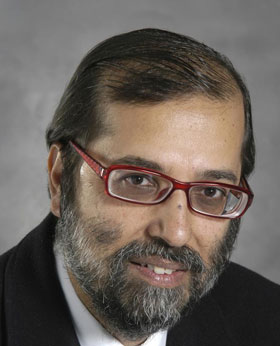
Communications minister Yunus Carrim plans to hold a high-level meeting between broadcasters in mid-September, to be mediated by an independent third party, in an effort to resolve a simmering dispute over whether government-subsidised set-top boxes for digital terrestrial television will feature a control system.
Battles over the control system, also known as the conditional access system, have raged for more than a year, delaying the already long-delayed introduction of digital television in South Africa. Government wants the control system, among other things, to prevent the subsidised set-top boxes from being resold outside the country.
The ongoing delays mean South Africa is in danger of missing a commitment to the International Telecommunication Union to switch off analogue broadcasts by June 2015. More worryingly, the delays are holding up the licensing of radio frequency spectrum that could be used to extend wireless broadband services to more South Africans.
Though Carrim declines to name the broadcasters that are at loggerheads, it’s well known that e.tv is strongly in favour of a conditional access system, while M-Net, which is a subsidiary of Naspers-controlled MultiChoice, wants a more basic set-top box.
Carrim tells TechCentral that the department of communications is in the “regrettable” situation that whatever it decides on conditional access, it is likely to be challenged in court by one of the parties.
“We are in a very sensitive phase,” Carrim says. The meeting planned for mid-September will have an independent facilitator, who must still be appointed.
“There are material issues at stake here and it’s not going to be easy to secure consensus. The aim, at the very least, is that what we would get is a sense of where exactly there is consensus and where there isn’t, and a get better sense of the options for government.”
Ultimately, however, the department of communications will make a decision, one way or the other, even if no consensus can be reached. “We are government and we are elected to govern.”
But, Carrim says, even if one of the parties is not happy with the outcome, “at least they would have been fully considered”.

“We are sincere about listening to them and seeking consensus but we are not prepared to have an endless dialogue about the issue. This attempt to bring the parties together will be the final initiative.”
He says that soon after the mid-September meeting, he hopes to “tie up the loose ends”.
“We are behind with our deadlines, June 2015 in looming, and we have to move forward.” — (c) 2013 NewsCentral Media




